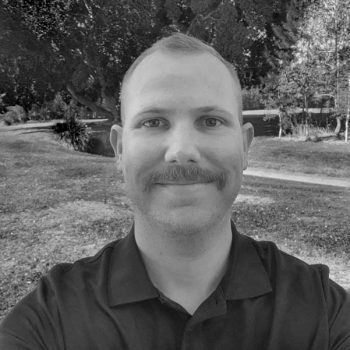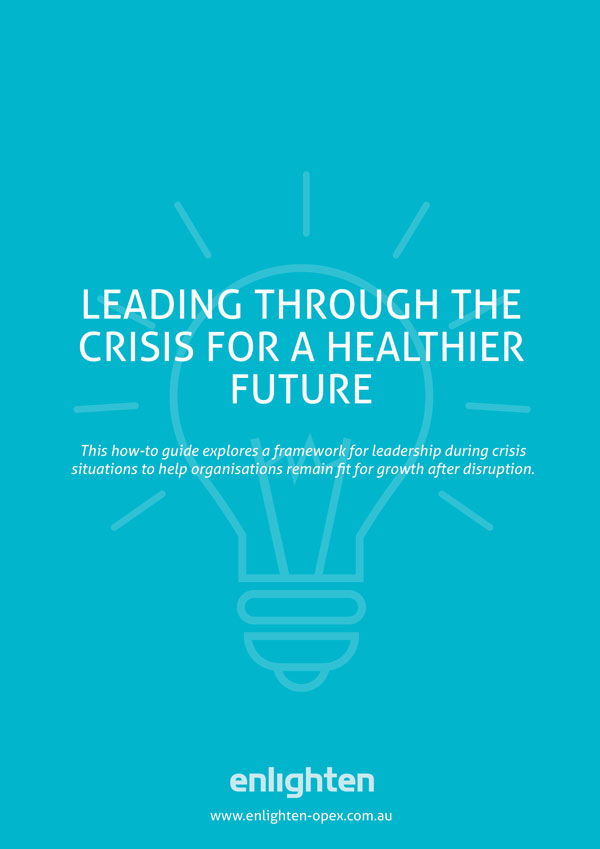A true team player, Daniel says today’s organizational leaders need to wear multiple hats and be prepared to roll up their sleeves to find solutions to pressing business problems. And with disruption showing no sign of slowing down, Daniel sees the role of leadership becoming increasingly important in helping organizations navigate unchartered territories.
As the meaning of productivity undergoes a fundamental shift and data takes on renewed importance in conversations about workplace performance, Daniel encourages business leaders to rethink operational excellence. He takes the view that a top-down push to rethink performance metrics will be vital as businesses embrace automation and AI.
Tell us a little bit about your role at Enlighten. What has your career journey been like to date?
As a product manager at Enlighten, I oversee the development of our Enlighten software. Product management, especially in software, is really about ensuring that key stakeholders are always on the same page when it comes to product strategy, but building new functionality and addressing requests that come in from current users is the core focus of my role. It is also highly collaborative in nature and on any given day I might be working with Sales, Marketing or Engineering. I also attend client meetings to understand how the product is being used by end-users and feed that back to the business to ensure our product is always being improved.
What are some challenges you have encountered in your career and how have you overcome them?
Balancing stakeholder expectations with reality, given how complex and time-consuming development is, can be a major one – whether that’s clients who each have their own priorities or the vision of internal stakeholders. It takes experience and skill to manage competing expectations.
Secondly, agile product development means requirements can change and priorities shift from time to time, but following the product roadmap and ensuring everyone gets behind it is particularly important, especially when ad-hoc requests can detract from the strategic vision.
Is there anything that you would still like to achieve in your career or what is the next step in your journey?
That’s a good question because at Enlighten we have been growing quite rapidly over the last two to three years, especially in the U.S. Naturally, being in a product management role, I’d like to expand the product team here in Australia and build a really good, cohesive team with the ability to analyze users’ business problems and get solutions turned around as quickly as possible.
What are some highlights you can see users experience with Enlighten?
From a product point of view, I’m really impressed with our recent release that essentially makes Enlighten an all-in-one solution for clients who might currently be using a number of third-party solutions for things like process modelling or continuous improvement. These additions tie in nicely with the existing functionality of Enlighten and with more data in the one platform, customers will not only be able to get a more comprehensive view of business performance, but also greater control over it.
Enlighten supports businesses to celebrate daily successes and uncover the barriers that prevent people from getting their work done. What are some examples you have seen?
Removing friction and reducing barriers in everyday work is a big one, but what I really like about it is the fact that it allows end-users to see how well they are performing and drive conversations about performance with their managers.
In the past, performance reviews that relied upon what managers were noticing were the only real way for employees to understand the impact of their work, or maybe the occasional email with positive feedback about their work.
Having tools like Enlighten empowers employees to have greater organizational impact by understanding the areas in which they’re doing well or even overperforming and where there is room to improve.
What are the biggest changes you have witnessed in the area of leadership and operational excellence?
Sometimes, collecting data to measure efficiency and waste is looked at as ‘policing’ and prevents organizations from getting a true picture of business operations. But leadership really does set the tone for operational excellence, in my opinion. In organizations where there is a top-down push for better ways of working, individuals tend to be more open to the tools that can help them do so. Not resisting change and keeping a positive mindset helps teams really connect with the products such as Enlighten and fully use the built-in functionality to drive operational excellence. We’re seeing more of this as it becomes important for businesses to drive forward with data.
What do you think the future holds for leaders as businesses continue to change rapidly?
More disruption, innovation, and change, but also the opportunity to lead from the front when it comes to embracing disruption and guiding organizations on the journey. As disruption accelerates, leaders will need to be open and accepting of change, but they will also need to be realistic about technology adoption. Rather than getting caught up in the hype, business leaders will need to liaise with key stakeholders to understand how new technologies, or any change for that matter, can be best approached together.
Where do you see the industry headed in the immediate to mid-term future?
As back of house processing in organizations becomes more and more automated the need to understand the performance drivers between manual and automated workflows will be important. The unique offering that Enlighten provides the industry in management consulting, operational excellence and understanding business performance through our software will continue to assist organizations as they automate their processes and get a deeper understanding of how their teams and divisions are truly operating.
What are the opportunities and what are the challenges?
Across a lot of industries and organizations that have multiple workflows, processes, and team interactions we see a range of third-party products and tools being used to manage the day-to-day running of a business. This creates an opportunity to build features into the Enlighten product that will assist teams in removing the need to operate multiple third-party tools. The Enlighten software has recently been enhanced to provide Process Modelling and Continuous Improvement project capabilities. Enlighten will continue to provide new and differentiating services to assist users in streamlining business processes and workflows.
What has been your biggest ‘aha’ moment as a leader or in your career?
My understanding of leadership styles deepened when I first started out in a leadership role myself. It was all about understanding the differences in attitudes and mentalities as everybody is different. I learned never to hold anything against anybody. So, my big ‘aha’ moment was realizing that people have different work styles and respond to different leadership styles. This allows me to work more effectively with individuals, teams, and other leaders and drive successful outcomes for the business.
You recently won the Enlighten BOBS award, a peer-nominated award for Enlighten team members who exemplify the BOBS code: Be respectful and humble, One team, Bring positive energy, Step up. You’re an expert in your field and a master of the Enlighten software, but you also demonstrate exceptional leadership skills. Can you share how you balance your technical expertise with managing and leading your team effectively?
It’s nice to be recognized for who you are and how you work with people. The bigger reward is seeing our teams communicating better with each other and working well together. For me, it always comes back to ‘know your audience’. Something I’ve learned over the years is making sure your communication style is appropriate to the audience in front of you. Whether that’s putting on my product-owner hat when helping technical teams see the business problem and understand what the user experience needs to look like or playing the role of the subject matter expert when translating development issues for internal stakeholders from non-technical backgrounds such as client success managers or the management team. Making sure everybody is on the same page and that any fog is removed helps the business see the value my team is adding.


